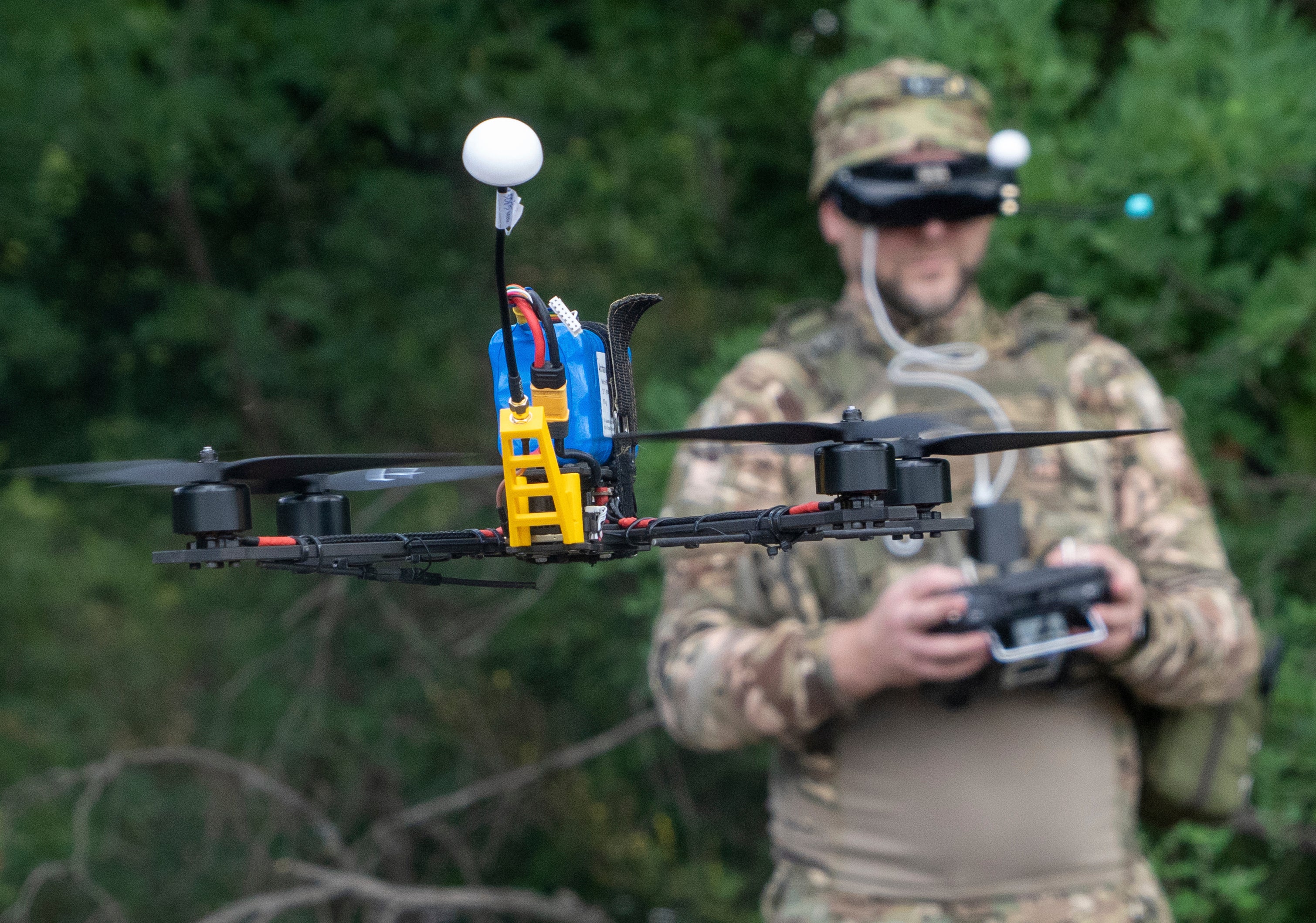Children in Lithuania will be taught how to build and operate drones as the country builds its capacity to counter the potential threat of a Russian attack.
The government in Vilnius aims to teach more than 22,000 people drone skills as it looks to “expand civil resistance training”. The initiative, led jointly by the defence and education ministries, will see children aged eight and above among the thousands taught how to build and pilot drones.
The first three drone centres are due to open in September and the remaining six by 2028. The plan is for 15,500 adults and 7,000 children to be taught drone skills by 2028, defence minister Dovilė Šakalienė said.
It will be adapted to different age groups, with children between eight and 10 years old learning to build and pilot simple drones, meanwhile secondary-school students would learn to design and manufacture drone parts.

The older children would also learn how to build and fly the more-advanced ‘first-person view’ drones which have been a vital element of both Ukraine and Russia’s war strategies.
Drones have become increasingly common in everyday life and warfare in recent years. The Nato country of about 2.8 million people on the alliance’s eastern flank borders both Russia’s Kaliningrad exclave and Moscow-allied Belarus – and since Russia’s full-scale invasion of Ukraine it has been on high-alert regarding the Russian threat.
The Lithuanian government plans a total investment of more than €3.3m into the plan.
“The youngest participants will engage in simple drone construction and piloting through games and experiments,” said Tomas Godliauskas, Lithuania’s vice-minister of national defence. He said that the training would deepen children’s “technical literacy” through extracurricular courses.
“Secondary students will learn programming basics alongside indoor drone piloting and construction, while upper secondary students will design 3D drone parts and construct FPV drones,” he added.
Lithuania’s active use of drones has grown and is motivating its increasing focus on drone technology. In July, two incidents were recorded in which suspected Russian drones crossed from Belarus into Lithuanian territory.
A report by the Institute for the Study of War (ISW) earlier this year found that Russia had begun teaching thousands of school children in the occupied Ukrainian territories how to use drones.
The report found that drone development had become a strategic state project in Russia, looking into research and manufacturing but also how to create a large-scale production base.




